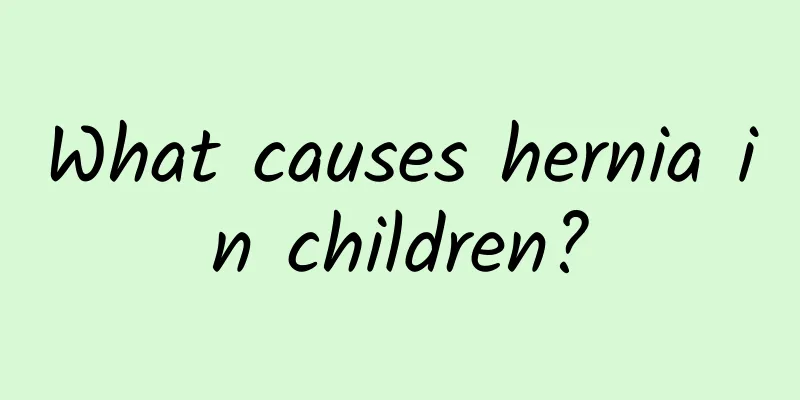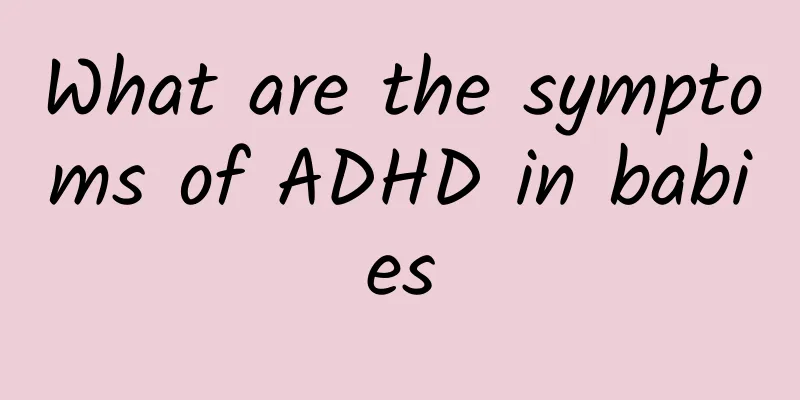When can baby's congenital megacolon be seen?

|
Hirschsprung's disease can usually be detected in the neonatal period, but if the symptoms are mild or atypical, it may take several months or even longer to be diagnosed. Parents should pay close attention to the baby's bowel movements and whether there are abnormal symptoms such as abdominal distension, and seek medical examination in time to confirm the diagnosis and take treatment. 1Possible manifestations and time of discovery The most common manifestation of Hirschsprung's disease in the neonatal period is delayed or absent meconium excretion. Normal newborns should excrete meconium within 24-48 hours after birth, but be alert if anything unusual occurs. Symptoms may include persistent constipation, abdominal distension, vomiting, and slow growth. Mild cases may have no obvious symptoms, and parents may not gradually become aware of their child's defecation problems until they start adding complementary foods. 2 Causes and diagnosis methods Hirschsprung's disease is a congenital disease that mainly causes intestinal motility disorders due to abnormal development of intestinal ganglion cells. Its risk factors include family inheritance or fetal developmental abnormalities. Diagnosis usually requires a combination of clinical manifestations and medical imaging examinations, such as intestinal X-ray angiography, rectal suction biopsy or pressure measurement to confirm the extent of the loss of intestinal ganglion cells. 3 Treatment methods and nursing recommendations The core of treating Hirschsprung's disease is to surgically remove the diseased intestinal segment lacking ganglion cells to make the intestines unobstructed. Common surgical methods include: rectal mucosal resection, transanal intestinal resection or laparoscopic-assisted surgery. If the condition is mild or surgery has not yet been performed, the doctor may recommend methods such as anal venting and cleansing enema to relieve symptoms. In home care, parents need to pay attention to burping the baby correctly after feeding to avoid abdominal distension or vomiting. Babies after surgery need regular follow-up to avoid postoperative complications such as intestinal stenosis or infection. Early detection and accurate diagnosis are the key to the treatment of Hirschsprung's disease. If your baby is found to have symptoms such as constipation and bloating, you should seek medical attention immediately and have a professional evaluation to clarify the situation. If parents actively cooperate with the medical team, the baby's prognosis is usually good, and most children can resume normal life and growth and development after surgery. |
<<: How long is polio contagious?
>>: How to treat acute laryngitis in children
Recommend
What are the sequelae of infant colds? How to treat infant colds?
Infant colds are common problems and generally do...
What are the early symptoms of jaundice hepatitis? Common symptoms of jaundice hepatitis patients
Jaundice hepatitis is a disease in which liver ce...
What is a child's persistent cough? What should we do about it?
Coughing is a very common phenomenon in life and ...
Do symptoms of hand, foot and mouth disease in adults indicate poor immunity?
The symptoms of hand, foot and mouth disease in a...
Methods of early prevention of polio
Polio is an acute infectious disease caused by th...
What are the treatment principles for patent ductus arteriosus in newborns?
The treatment principles for patent ductus arteri...
What are the symptoms of mumps
Mumps, this name may sound unfamiliar, but it is ...
What are the sequelae of pneumonia in children
Pneumonia in children has no obvious sequelae, bu...
Can babies with indigestion eat chocolate? Chocolate can actually cause indigestion in babies
Mothers always want their babies to taste a varie...
There are several ways to check for Hirschsprung's disease
The examination methods of congenital megacolon m...
What are the precautions for children with pneumonia? What are the dietary taboos for children with pneumonia?
Children are very susceptible to pneumonia, so ev...
What tests should be done for diarrhea in children
There are fewer children in the family nowadays, ...
How should neonatal jaundice be classified? What are the causes of neonatal jaundice?
Neonatal jaundice is one of the most common clini...
How many days does it take for a child to recover from mumps?
Children with mumps usually need 7 to 10 days to ...
Does neonatal jaundice require treatment?
Does neonatal jaundice require treatment? Whether...









